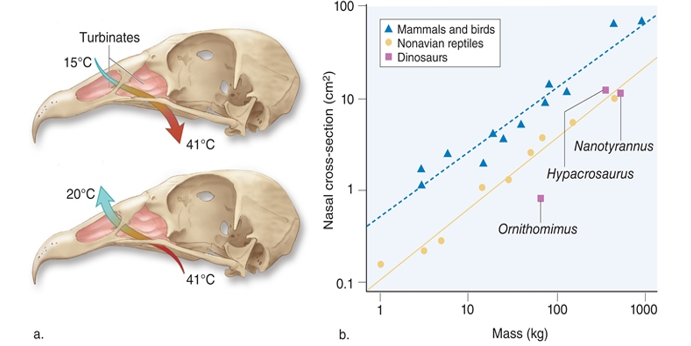A) epinephrine.
B) aldosterone.
C) follicle-stimulating hormone (FSH) .
D) insulin.
E) testosterone.
G) A) and C)
Correct Answer

verified
Correct Answer
verified
Multiple Choice
The major excretory organ of the human urinary system is the
A) gall bladder.
B) pancreas.
C) liver.
D) adrenal gland.
E) kidney.
G) A) and D)
Correct Answer

verified
Correct Answer
verified
Multiple Choice
Dialysis is a procedure in which a machine takes over the function of the
A) liver.
B) pancreas.
C) hypothalamus.
D) urinary bladder.
E) kidney.
G) None of the above
Correct Answer

verified
Correct Answer
verified
Multiple Choice
If a drug had been banned for damaging the kidney by causing poor drainage of the glomerulus,you would suspect that the drug caused damage to
A) the renal pelvis.
B) the pacinian corpuscle.
C) Bowman's capsule.
D) the renal vein.
E) the renal artery.
G) C) and D)
Correct Answer

verified
Correct Answer
verified
Multiple Choice
The outer main section of the kidney is the
A) renal periphery.
B) renal medulla.
C) renal cortex.
D) glomerulus.
E) collecting duct.
G) A) and C)
Correct Answer

verified
C
Correct Answer
verified
Multiple Choice
If you were working with a patient and were told urine was blocked at the last step before exiting the body,you would try to find a technique or drug to unblock the
A) uvula.
B) renal vein.
C) nephron.
D) urethra.
E) ureter.
G) A) and E)
Correct Answer

verified
Correct Answer
verified
Multiple Choice
Hyponatremia is a condition characterized by low sodium in the blood.This is a concern for marathon runners who drink too much water,and can cause life-threatening pressure on the brain.Why would this occur?
A) Neurons would take up the sodium from the blood and not be able to polarize.
B) Neurons would be stimulated to all fire at once.
C) Neurons would swell by osmosis.
D) Neurons die in low levels of sodium.
E) Neurons cannot give the kidneys signals to reabsorb sodium ions.
G) A) and B)
Correct Answer

verified
Correct Answer
verified
Multiple Choice
A diuretic is a substance that
A) decreases the permeability of the tubules to water.
B) increases the volume of blood.
C) decreases the volume of water in the body.
D) increases the volume of urine.
E) increases the production of ADH.
G) All of the above
Correct Answer

verified
Correct Answer
verified
Multiple Choice
One symptom of kidney failure can be the appearance of blood in the urine.This would indicate that which part of the kidney was damaged?
A) proximal convoluted tubule
B) distal convoluted tubule
C) glomerulus
D) nephron
E) collecting duct
G) A) and E)
Correct Answer

verified
Correct Answer
verified
Multiple Choice
You have discovered a kind of bird which has adapted to become aquatic.What would you expect if it lives submerged in freshwater?
A) The bird would take up water into its cells by osmosis.
B) The bird would visit land to eat salt.
C) The cells of the bird would absorb water by osmosis.
D) The bird's kidneys would face constant stress.
E) The bird would excrete urea.
G) A) and B)
Correct Answer

verified
Correct Answer
verified
Multiple Choice
If,during a dissection,you were asked to place a pin in the part of the kidney containing the collecting duct,you would pin the
A) renal periphery.
B) renal cortex.
C) glomerulus.
D) collecting duct.
E) renal medulla.
G) A) and E)
Correct Answer

verified
Correct Answer
verified
True/False
From the collecting duct,urine first goes to the ureter.
B) False
Correct Answer

verified
Correct Answer
verified
Multiple Choice
A tuft of capillaries within the kidney that is used to collect blood that needs to be filtered is the
A) glomerulus.
B) collecting duct.
C) renal medulla.
D) renal cortex.
E) renal pelvis.
G) C) and E)
Correct Answer

verified
Correct Answer
verified
Multiple Choice
Figuer:  -In this figure,the authors of the study looked for a correlation between which two variables?
-In this figure,the authors of the study looked for a correlation between which two variables?
A) mass and nasal cross section.
B) mass and endothermy
C) being extinct and mass
D) mass and nasal cross section
E) presence of a turbinate and nasal cross section.
G) None of the above
Correct Answer

verified
Correct Answer
verified
Multiple Choice
What effect would drinking salt water have in a human?
A) dehydration as the extra salt pulls water out of the blood into the urine
B) dehydration as the extra salt pulls water out of the urine into the blood
C) increased hydration as the extra salt in the blood pulls water out of tissues
D) increased hydration as the extra salt in the urine pulls water out of tissues
E) dehydration as salt in the intestines pulls water out of the urine
G) A) and C)
Correct Answer

verified
Correct Answer
verified
True/False
Dilation of blood vessels in extremities can help animals lose excess heat as part of thermoregulation.
B) False
Correct Answer

verified
Correct Answer
verified
Multiple Choice
The functional unit of a kidney is a
A) neuron.
B) glomerulus.
C) nephron.
D) collecting duct.
E) nexus.
G) A) and B)
Correct Answer

verified
C
Correct Answer
verified
True/False
An endotherm typically will have a karger nasal cavity than an ectotherm of equivalent mass.
B) False
Correct Answer

verified
Correct Answer
verified
Multiple Choice
The process used to control the level of water and ions in body fluids is termed
A) thermoregulation.
B) mechanoregulation.
C) chemoregulation.
D) hemoregulation.
E) osmoregulation.
G) A) and D)
Correct Answer

verified
E
Correct Answer
verified
Multiple Choice
The hormone secreted by the posterior pituitary that causes the reabsorption of more water by the kidney is
A) antidiuretic hormone (ADH) .
B) follicle-stimulating hormone (FSH) .
C) growth hormone (GH) .
D) luteinizing hormone (LH) .
E) adrenocorticotropic hormone (ACTH) .
G) B) and E)
Correct Answer

verified
Correct Answer
verified
Showing 1 - 20 of 49
Related Exams